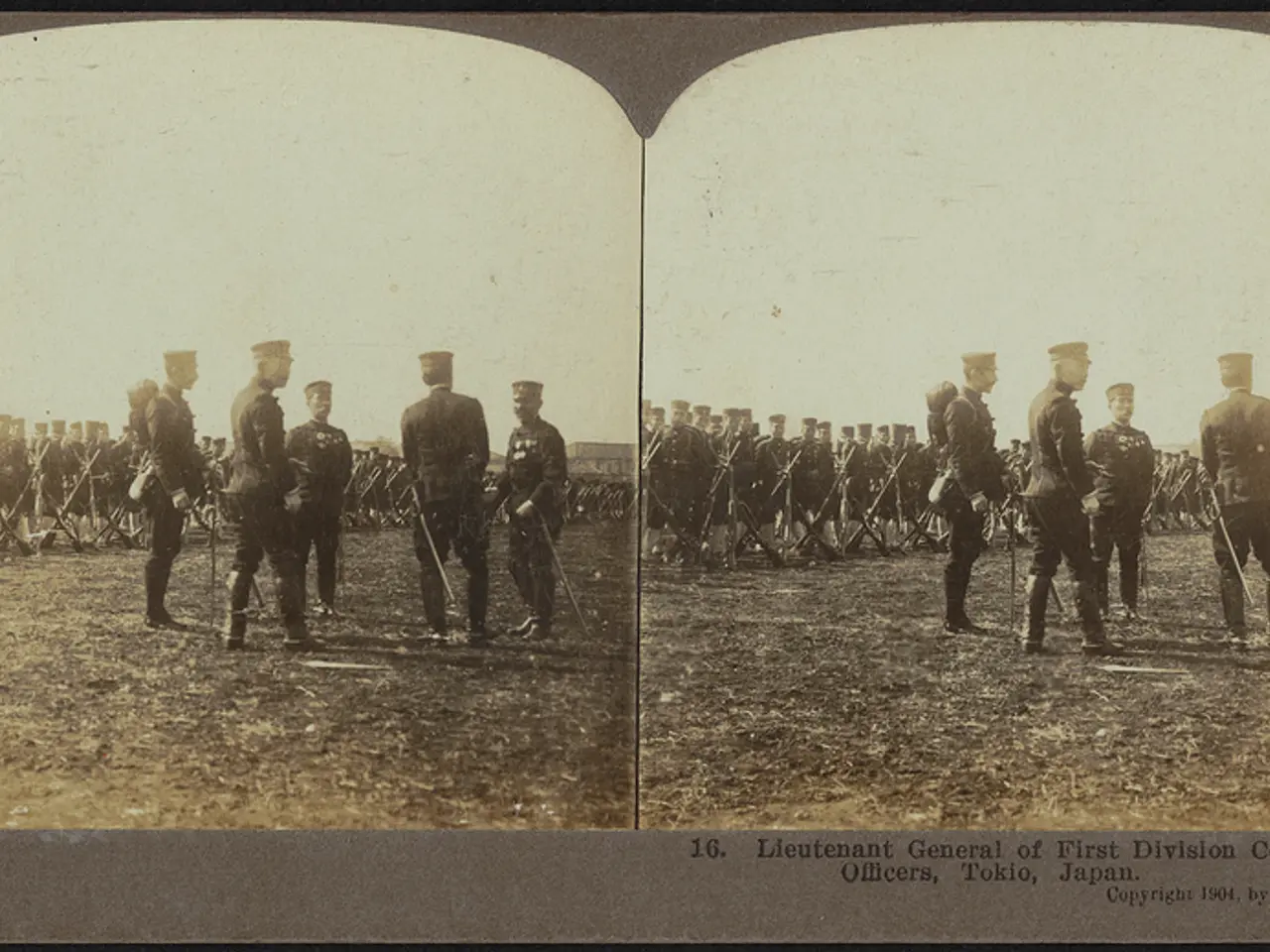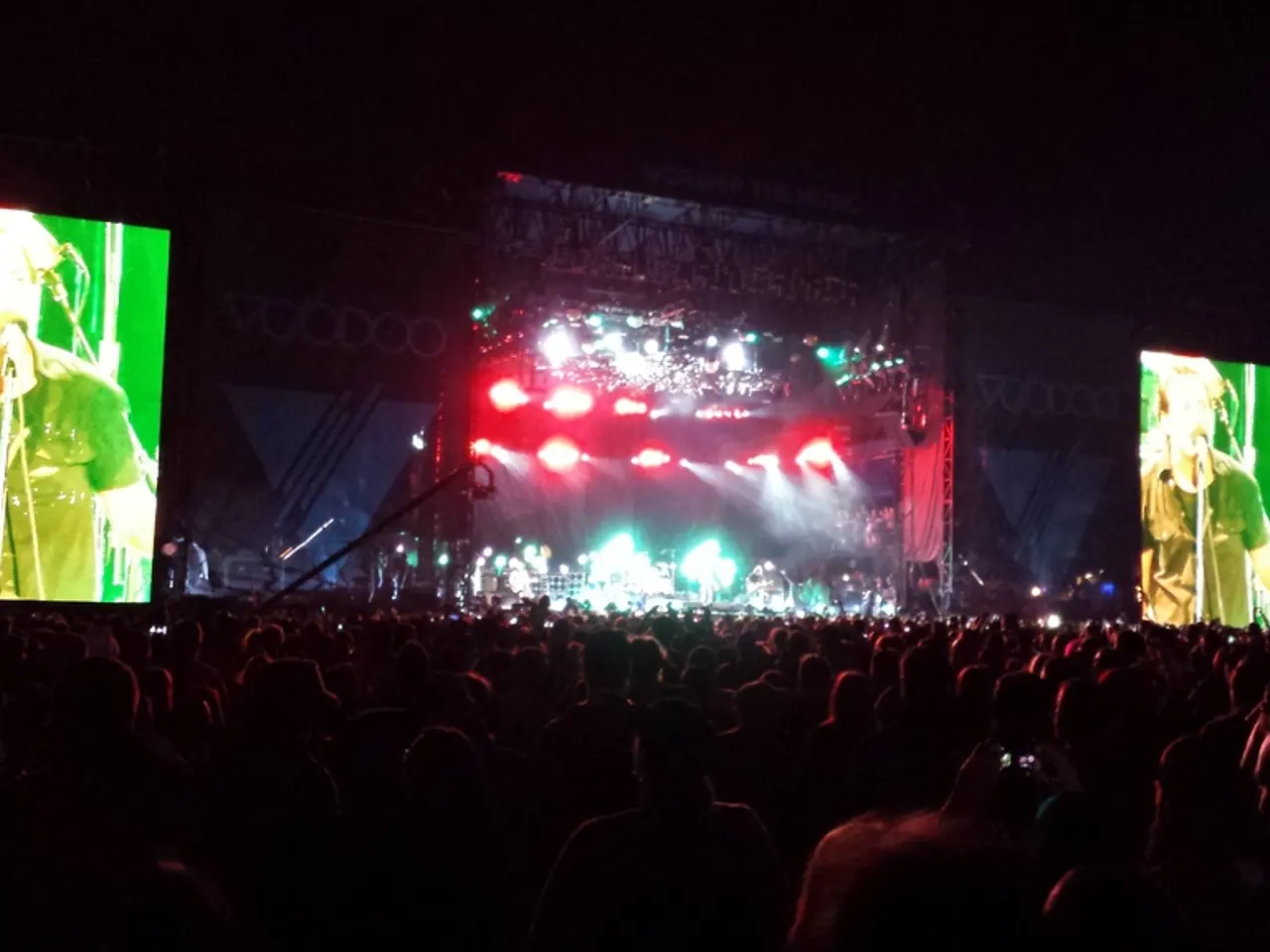Influence of Pop Culture and Politics: Exploring the Connection between Public Opinion and Military Special Operations Units and Their Impact on Civil-Military Ties
In the realm of popular culture and politics, the portrayal of former Special Operations Forces (SOF) members has taken on a significant role, shaping perceptions and influencing civil-military relations in the United States.
Back in 2017, a US Army and Marine veteran jokingly posted on social media that SEALs were experts in policy, creativity, ethics, business, CrossFit, and good governance. This light-hearted comment echoed a broader trend – the elevation of SOF to near-mythic status.
One of the most prominent examples of this phenomenon is the work of Navy SEAL Forrest S. Crowell, who wrote a thesis at the Naval Postgraduate School on the problems of self-promotion within the SEAL community. His research underscores the growing cult-like status of SOF, a trend that has far-reaching implications for civil-military relations.
The roots of this phenomenon can be traced back to the end of the Vietnam War. Despite the SOF's involvement in controversial operations, their portrayal in popular media continued to show them fighting terrorists, communist guerrillas, or Soviet intelligence forces. This image was further cemented in numerous movies based on real-life missions, such as Robin Moore's 1965 book "Green Berets" and the subsequent movie.
In recent years, this trend has extended beyond the silver screen. Certain portions of the electorate value the opinions of former SOF members as a litmus test of American policy. Former SOF personnel have not shied away from this role, discussing not only military topics but also social and cultural issues that have little connection to national security issues in the media.
The cult of SOF has also impacted civil-military relations in more subtle ways. The public's admiration for SOF can lead to a broader outsourcing of military engagements to a small, highly specialized subset of society, reducing general public engagement with and scrutiny of military conflicts. This can strain democratic oversight mechanisms.
Moreover, the politicization of the military, in part fueled by visible figures like SOF veterans in political roles and a spectacle-focused media environment, correlates with diminishing public trust in the institution. This trend risks undermining the careful balance of civilian oversight and military subordination to elected authority – the core of American civil-military relations.
The emphasis on secrecy and the extraordinary demands placed on SOF can limit transparency and congressional or civilian oversight. This secrecy, combined with media amplification, risks insulating them from democratic accountability and complicates integration with broader political or diplomatic strategies.
The portrayal of the government as an adversary of both citizens and the military in novels like those of Richard Marcinko could be seen as a loss of faith in civilian leadership. Conspiracy theories have even emerged that mirror the plots of these fictional novels.
However, the cult of SOF is not without its benefits. It can inspire young Americans to serve in the military. In 2022, nine former members of the US Army's Special Forces and six former Navy SEALs ran for congressional seats, filling what one laudatory observer described as "a void in leadership at the National level."
In conclusion, the portrayal of former SOF in popular culture and politics impacts US civil-military relations by heightening the military’s politicization, reducing transparency, and challenging the norms and trust essential to democratic civilian control of the military. This calls for reinforced oversight, renewed public discourse, and efforts to contextualize SOF within broader civil-military frameworks rather than as isolated heroes or political symbols.
- The elevation of Special Operations Forces (SOF) to near-mythic status in popular culture and politics has significant implications for civil-military relations in the United States.
- In recent years, certain portions of the electorate value the opinions of former SOF members as a litmus test of American policy, extending beyond military topics to social and cultural issues.
- The public's admiration for SOF can lead to a broader outsourcing of military engagements to a small, highly specialized subset of society, reducing general public engagement with and scrutiny of military conflicts.
- The portrayal of the government as an adversary of both citizens and the military in novels like those of Richard Marcinko could be seen as a loss of faith in civilian leadership, with conspiracy theories even emerging to mirror the plots of these fictional novels.
- The cult of SOF is not without its benefits, as it can inspire young Americans to serve in the military, with nine former members of the US Army's Special Forces and six former Navy SEALs running for congressional seats in 2022.
- The emphasis on secrecy and extraordinary demands placed on SOF can limit transparency and congressional or civilian oversight, insulating them from democratic accountability and complicating integration with broader political or diplomatic strategies.







